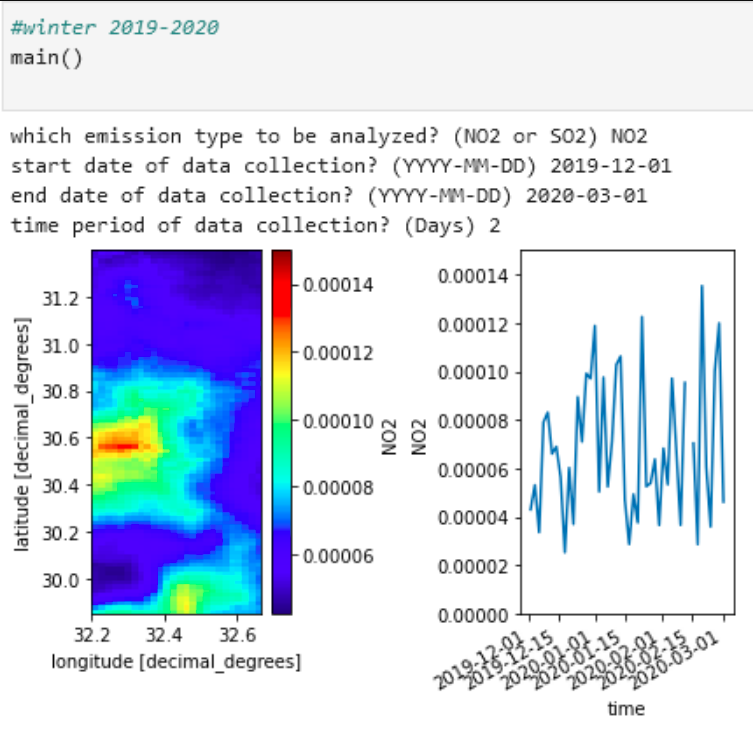Awards & Nominations
Air Square has received the following awards and nominations. Way to go!

Air Square has received the following awards and nominations. Way to go!

The COVID-19 pandemic strongly affected global logistics and supply chains, and hence shipping activity. This challenge asks you to target the characterization of dynamic shipping activities as seen from space.
The aim of our project is to study the impact of ship traffic on air quality across the world. We used emissions data from the Sentinel-5 satellite and plotted them to better visualise the impact from some of the busiest ship routes. We decided to focus on a specific area, the Suez Canal, an important international navigation route. However, this can be extended and applied to any area, by adjusting the code. The script we coded is able to display graphs that show the average NO2 or SO2 emissions of a chosen timespan. With this information, we have analyzed the Suez canals emissions in summer and in winter comparing pre-covid and covid times.time in europe now
We worked to use the data of emissions from the Sentinel-5 satellite for making graphs with which we are able to analyze our assumptions on the impact of ship traffic. To demonstrate, as an example, we have chosen the Suez canal, an important route for transport from ships.
The code we have written helps to easily visualise both the spatial and temporal variation in air quality in the region for a chosen time period. The map depicting the average NO2 /SO2 concentration over the region helps identify areas where pollution is more and understand the causes. The graph plot shows the variation in the amount of emissions over time.

We applied this code to study the seasonal variations as well as impact due to the pandemic. The results obtained showed higher average concentration in the winter months, which, while could be a result of many factors, such as higher power requirement, etc, could also be an indicator of higher lifetime of NO2 and SO2 in the atmosphere.
We were inspired to choose this challenge as this is an important, yet more neglected cause of deteriorating air quality. It is estimated, that about 90% of the world's trade is transported by sea. As for greenhouse gas emissions, shipping accounts for about 2.2% of the global man-made carbon dioxide emissions in 2012 and this is expected to rise 50 to 250 per cent by 2050, if no action is taken. This figure was quite alarming and concerning, and drew our interest to this topic.
We were also excited, as most of us had taken part in a hackathon for the first time. Ship traffic is a huge part of our international world and we wanted to show that this huge part is also a huge problem for our climate. The script we were working on was coded in python with JupyterLab and frameworks like xcube and matplotlib. We used data from sentinel-hub. Many of our team members had no experience in such projects as well as in programming. This was a problem at the beginning but ultimately, we worked together to accomplish this project. We would have enjoyed working more on this project given a bit more time but look forward to working together in future. The current state is a big achievement for all of us.
We were able to connect to the sentinel-hub that provided us with the data retrieved by Sentinel-5. The data was the key to our project code.
Our code can be found on GitHub: https://github.com/gruslak/EODashboardHackathon-S5P-suezcanal-emissions
The solution could be integrated as an analyzing script for the average emissions of the suez canal.
#air quality
This project has been submitted for consideration during the Judging process.